World
Top 10 international news stories of 2023
Wars in Ukraine, Israel continue; India rules against marriage equality
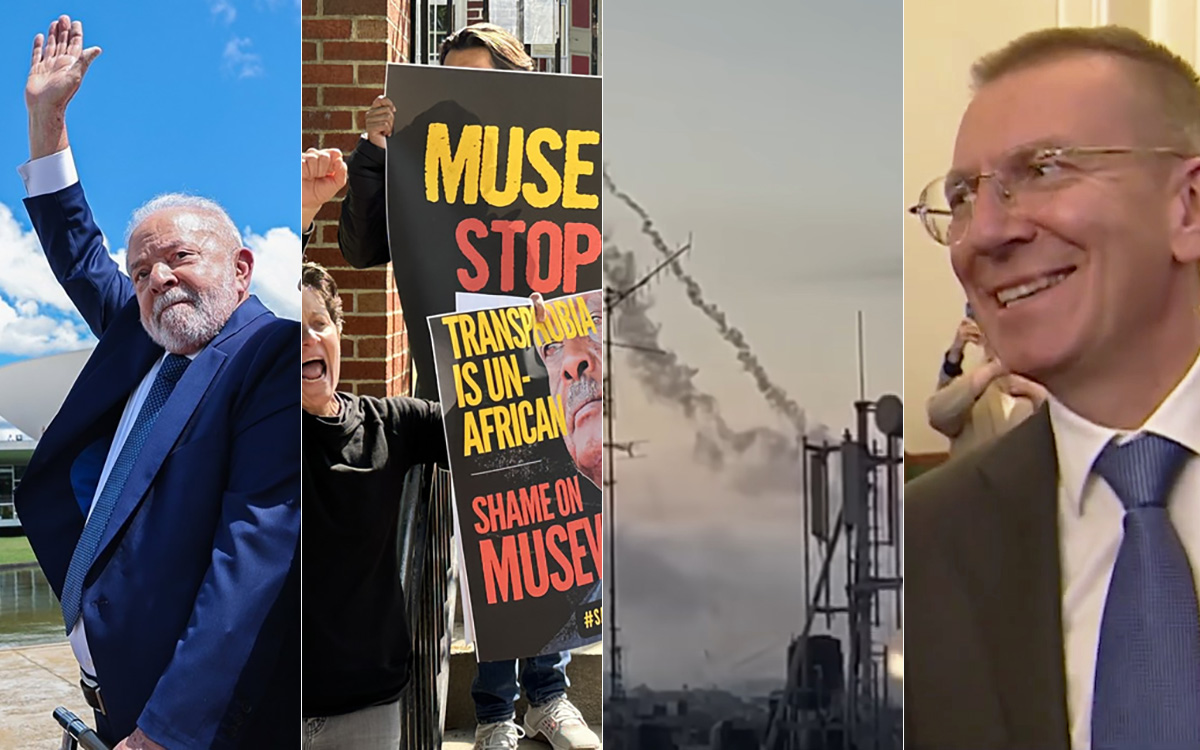
War, continued anti-LGBTQ crackdowns and the decriminalization of consensual same-sex sexual relations are among the issues that made headlines around the world over the past year. Here are the top international stories of 2023.
#10 Mauritius and the Cook Islands decriminalize homosexuality
The Mauritius Supreme Court on Oct. 4 issued a ruling that decriminalized consensual same-sex sexual relations in the country.
Abdool Ridwan Firaas (Ryan) Ah Seek, a gay man and prominent LGBTQ activist, in 2019 filed a lawsuit that sought to strike down the colonial-era penal code. The court issued its ruling roughly two months after Mauritius hosted the Pan Africa ILGA Conference.
Lawmakers in the Cook Islands in April voted to repeal a provision of a 1969 law that criminalized homosexuality in the country.
#9 British Prime Minister Sunak fires anti-LGBTQ Home Secretary
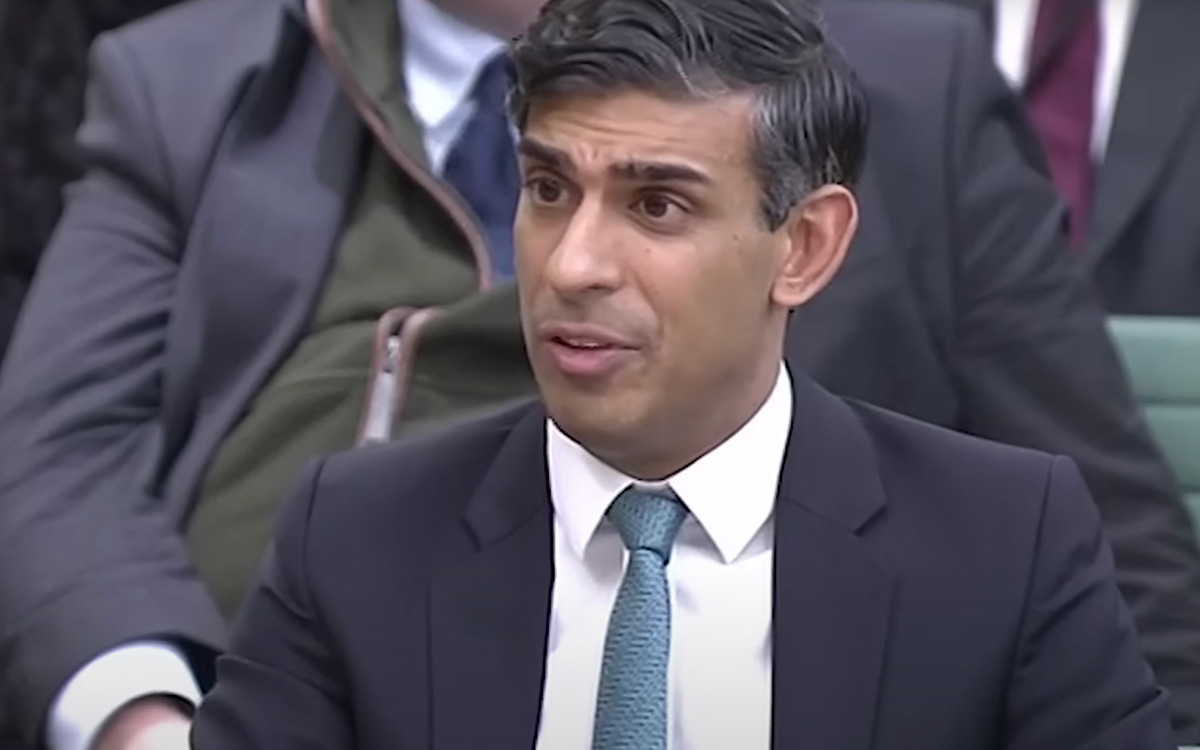
British Prime Minister Rishi Sunak on Nov. 13 fired Suella Braverman, his government’s controversial home secretary who was a vocal opponent of LGBTQ rights.
Braverman, among other things, opposed transgender rights.
“Trans women have no place in women’s wards or, indeed, any safe space relating to biological women,” she told Sky News a few weeks before Sunak fired her.
Braverman in a speech to the American Enterprise Institute in September said the country “will not be able to sustain an asylum system if, in effect, simply being gay or a woman, and fearful of discrimination in your country of origin, is sufficient to qualify for protection.”
#8 Edgars Rinkēvičs becomes Latvia’s first openly gay president

Edgars Rinkēvičs on July 8 became Latvia’s first openly gay president.
Rinkēvičs had been the country’s foreign minister since 2011. He is the first openly gay head of state of a European Union country or a nation that was once part of the Soviet Union.
#7 Anti-LGBTQ crackdowns continue in Russia, Eastern Europe

The Russian government in 2023 continued its crackdown on LGBTQ rights.
The country’s Supreme Court on Nov. 30 ruled the global LGBTQ rights movement is an “extremist organization.” Police within days of the ruling raided gay bars and clubs in Moscow and St. Petersburg.
President Vladimir Putin in July signed a bill that bans transition-related therapy and surgery in the country.
U.S. Ambassador to Hungary David Pressman, who is gay, on June 16 criticized the crackdown on LGBTQ rights in the country during a speech he gave at a Budapest Pride reception. Gay Polish MEP (European Parliament member) Robert Biedroń during an interview with the Washington Blade in Brussels over the summer described Poland as “the most homophobic country on the map of Europe in the EU.”
#6 Thailand poised to become next Asian country to extend marriage rights
Thailand could become the next country in Asia to extend marriage rights to same-sex couples.
The country’s Cabinet on Nov. 21 approved a marriage equality bill. Lawmakers are expected to debate it this month.
Same-sex couples have been able to legally marry in Taiwan since 2019.
The Nepalese Supreme Court on June 28 issued a ruling that opened the door to marriage equality in the country. Maya Ram Bahadur Gurung and Surendra Pandey on Nov. 29 legally registered their marriage.
#5 Latin America’s first nonbinary judge killed by partner
Authorities in Mexico’s Aguascalientes state on Nov. 13 found Jesús Ociel Baena, Latin America’s first nonbinary judge, dead in their home.
Baena in October 2022 became a magistrate on Aguascalientes’ electoral court. Baena in June was one of the first people in Mexico to receive a passport with a nonbinary gender marker.
Baena had previously received death threats. Prosecutors said Baena’s partner killed them before dying by suicide.
#4 Brazilian President Lula da Silva sworn before Bolsonaro supporters storm capital
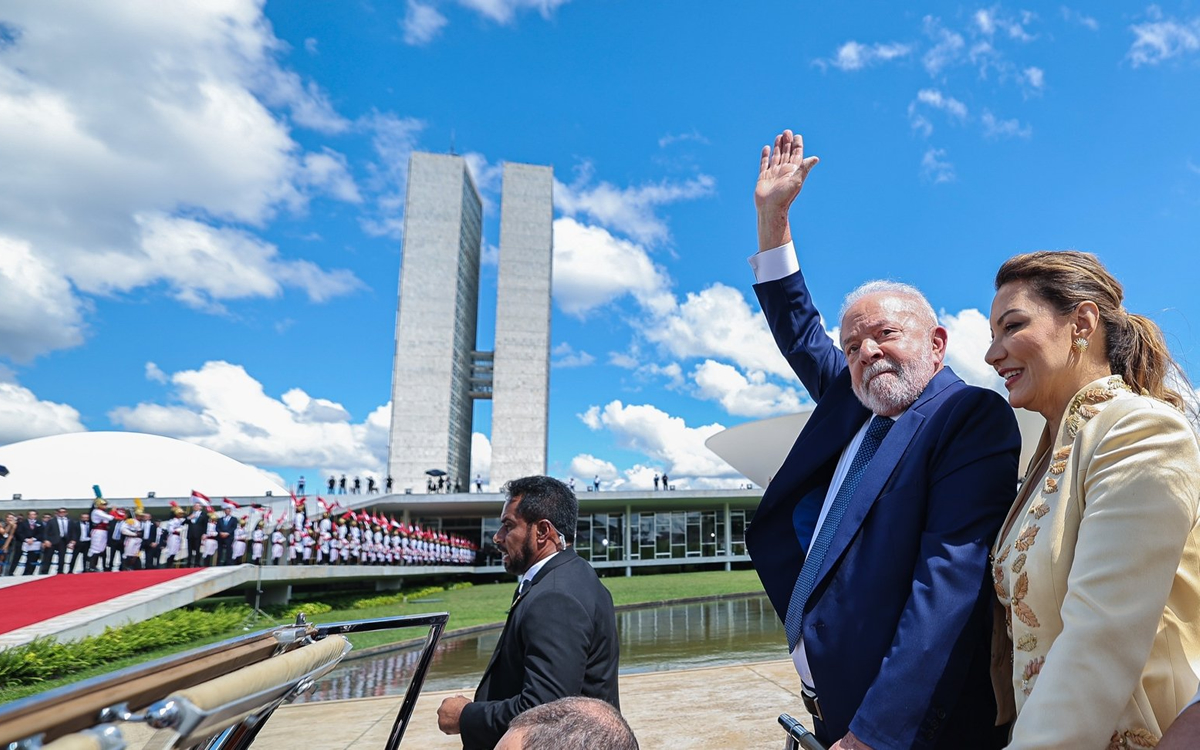
Brazilian President Luiz Inácio Lula da Silva on Jan. 1 took office in his country’s capital of Brasília.
Da Silva, a member of the leftist Worker’s Party, was Brazil’s president from 2003-2010. He defeated Jair Bolsonaro, a former Brazilian Army captain and congressman who sparked outrage over his comments LGBTQ people and other groups and his anti-democratic rhetoric, in the country’s presidential election that took place in October 2022.
Thousands of Bolsonaro supporters on Jan. 8 stormed Brazil’s Congress, Presidential Palace and Supreme Court.
#3 Uganda’s Anti-Homosexuality Act signed into law. Anti-LGBTQ crackdown in Nigeria. Neighboring countries seek to implement similar statutes. Namibian Supreme Court rules country must recognize same-sex marriages

Ugandan President Yoweri Museveni on May 29 signed his country’s Anti-Homosexuality Act, which contains a death penalty provision for “aggravated homosexuality.”
The U.S. in response imposed visa restrictions against Ugandan officials and removed the country from a sub-Saharan Africa free trade agreement. The World Bank Group also suspended new loans to Uganda.
Lawmakers in Kenya, Tanzania and other African countries have sought to introduce bills that are similar to the Anti-Homosexuality Act. Officials in Nigeria and other African countries over the last year continued to crack down on LGBTQ people.
The Namibia Supreme Court on May 16 ruled the country’s government must recognize same-sex marriages that were legally performed abroad.
#2 Indian Supreme Court rules against marriage equality
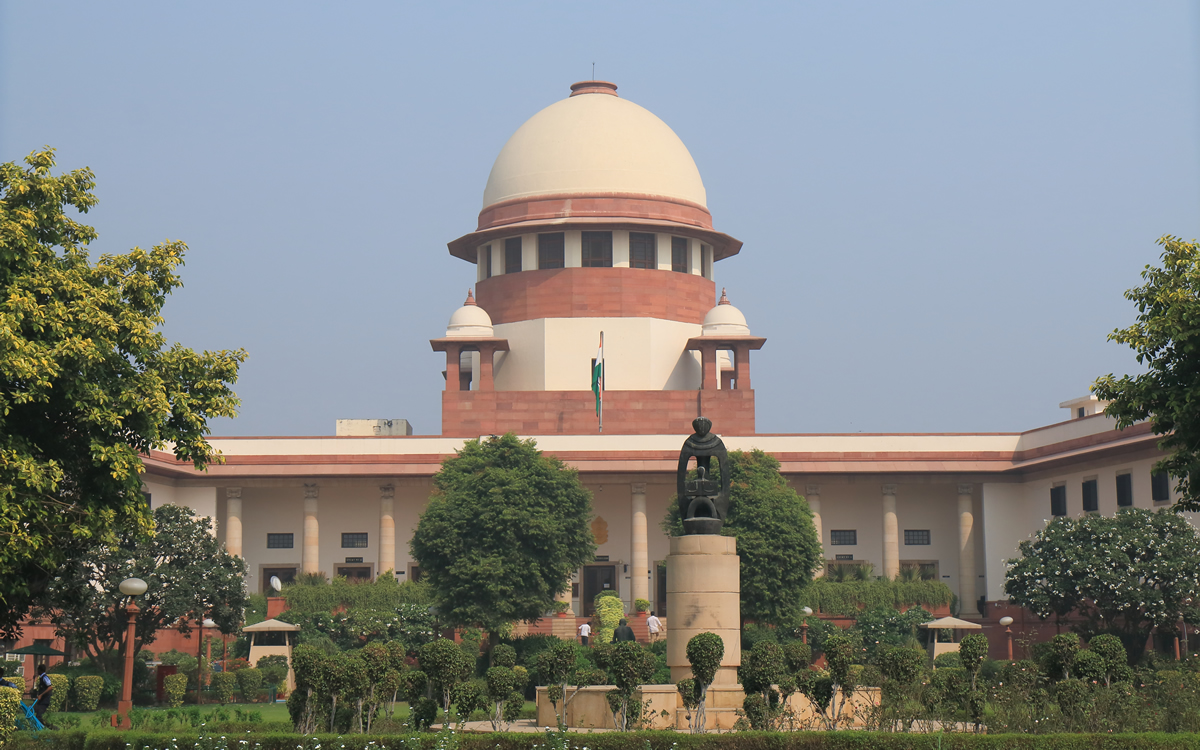
The Indian Supreme Court on Oct. 17 issued its long-anticipated ruling that did not extend marriage rights to same-sex couples.
The justices earlier in the year heard oral arguments in the landmark case. The Supreme Court in its ruling said lawmakers must decide whether to extend marriage rights to same-sex couples.
The Supreme Court on Nov. 23 agreed to consider an appeal of the ruling, although observers with whom the Blade has spoken say they don’t expect it to succeed. The Supreme Court in 2018 struck down India’s colonial-era sodomy law.
#1 War in Israel and Ukraine

Hamas on Oct. 7 launched a surprise attack against southern Israel.
The attack killed more than 1,000 Israelis, and militants from Hamas and other Muslim extremist groups kidnapped more than 200 people. The Hamas-controlled Gaza Health Ministry says Israeli airstrikes have killed upwards of 20,000 people in the Gaza Strip.
LGBTQ activists in Israel since Oct. 7 have worked to help people in the country whom the war has displaced.
Meanwhile, Russia’s war against Ukraine continues.
Oksana Markarova, the country’s ambassador to the U.S., on Jan. 26 during an event in Washington that highlighted LGBTQ Ukrainian servicemembers thanked activists for their work in support of equal rights.
“Thank you for everything you do in Kyiv, and thank you for everything that you do in order to fight the discrimination that still is somewhere in Ukraine,” said Markarova.
Spain
Spanish women detail abuses suffered in Franco-era institutions
Barcelona-based photographer Luca Gaetano Pira created ‘Las Descarriadas’ exhibit

A Barcelona-based photographer, audiovisual artist, and activist has created an exhibit that profiles Spanish women who suffered abuse in institutions that Gen. Francisco Franco’s dictatorship established.
Luca Gaetano Pira, who is originally from Italy, spoke with women who the regime, which governed Spain from 1936-1975, sent to Women’s Protection Board institutions.
The regime in 1941 created the board the country’s Justice Ministry oversaw.
Franco named his wife, Carmen Polo, as the board’s honorary president. Then-Prime Minister Felipe González fully dissolved the board in 1985, a decade after Franco’s death.
Gaetano’s exhibit is called “Las Descarriadas” or “The Misguided Women” in English.
“These are women who were detained between 1941 and 1985 for reasons that are unthinkable today: being lesbian, poor, pregnant out of wedlock, rebellious, politically active … or simply considered ‘morally suspect,'” Gaetano noted to the Washington Blade.
Groups affiliated with the Spanish Catholic Church ran these institutions. Gaetano pointed out they were “presented as social assistance centers.”
“In reality, they were spaces of punishment and forced reeducation, where isolation, unpaid work, and psychological violence were the norm,” he said. “Many of the survivors are still alive. Their testimonies are powerful, urgent, and of extraordinary current relevance.”
The regime sent more than 40,000 women to Women’s Protection Board institutions.
“Despite its seemingly benevolent name, it was in fact one of the most powerful instruments of moral and social control over women during and after the dictatorship,” notes the exhibit. “Under the guise of care and re-education, this institution functioned as a repressive apparatus that punished women who deviated from the ideal feminine model imposed by Franco’s regime: submissive, obedient, married, and dedicated to motherhood within the Catholic family structure.”
The Spanish Catholic Church last month issued a public apology, but Gaetano described it as “very soft” and noted “the women did not accept it.” Gaetano also compared the Women’s Protection Board institutions to Ireland’s Magdalene Laundries.
The Associated Press notes tens of thousands of “fallen” women were sent to the laundries that Catholic nuns operated in Ireland from the 18th century until the mid-1990s. Then-Irish Prime Minister Edna Kenny in 2013 issued a formal apology for the abuses that women suffered in the laundries and announced the government would compensate them.
The Spanish government has yet to offer compensation to the women abused in Women’s Protection Board institutions.
“My work focuses on recovering the historical memory of marginalized communities, particularly through the portrayal of survivors of institutional violence and the use of archival materials,” Gaetano told the Blade, noting he has also sought to highlight the repression that LGBTQ people suffered during dictatorships in Portugal and Latin America.
Gaetano’s exhibit can be found here:
Afghanistan
ICC issues arrest warrants for Taliban leaders over persecution of LGBTQ people, women
Groups ‘non-conforming’ with group’s gender policy targeted

The International Criminal Court on Tuesday issued arrest warrants for two top Taliban officials accused of targeting LGBTQ people, women, and others who defy the group’s strict gender norms.
The warrants are for Hibatullah Akhundzada, the Taliban’s supreme leader, and Afghanistan Chief Justice Abdul Hakim Haqqani.
“Based on evidence presented by the Office (of the Prosecutor), the judges found that there are reasonable grounds to believe that they have committed — by ordering, inducing, or soliciting — the crime against humanity of persecution, under article 7(1)(h) of the Rome Statute, on gender grounds, against girls, women, and other persons non-conforming with the Taliban’s policy on gender, gender identity or expression; and on political grounds against persons perceived as ‘allies of girls and women,’” reads an ICC press release that announced the warrants.
Karim Khan, the ICC’s chief prosecutor, in January announced a request for warrants against Taliban officials over their treatment of women and other groups since they regained control of Afghanistan in 2021. The request marked the first time the court specifically named LGBTQ people as victims in a gender persecution case before it.
“The issuance of the first arrest warrants in the situation in Afghanistan is an important vindication and acknowledgement of the rights of Afghan women and girls,” reads the press release the ICC released on Tuesday. “It also recognizes the rights and lived experiences of persons whom the Taliban perceived as not conforming with their ideological expectations of gender identity or expression, such as members of the LGBTQI+ community, and persons whom the Taliban perceived as allies of girls and women.”
A report that Outright International released in 2023 notes Taliban officials have systematically targeted LGBTQ people — especially gay men and transgender women.
Taliban officials have subjected them to physical and sexual assault as well as arbitrary detention. The Outright International report also notes Taliban authorities have carried out public floggings for alleged same-sex sexual relations, and have collected intelligence on LGBTQ activists and community members.
Artemis Akbary, executive director of the Afghanistan LGBTIQ Organization, praised the ICC.
“Today is a historic moment for LGBTIQ victims and survivors,” he said on social media.
El Salvador
#JusticiaParaKarla: una lucha por el derecho a la identidad en El Salvador
Karla Guevara inició su camino legal y personal en 2020
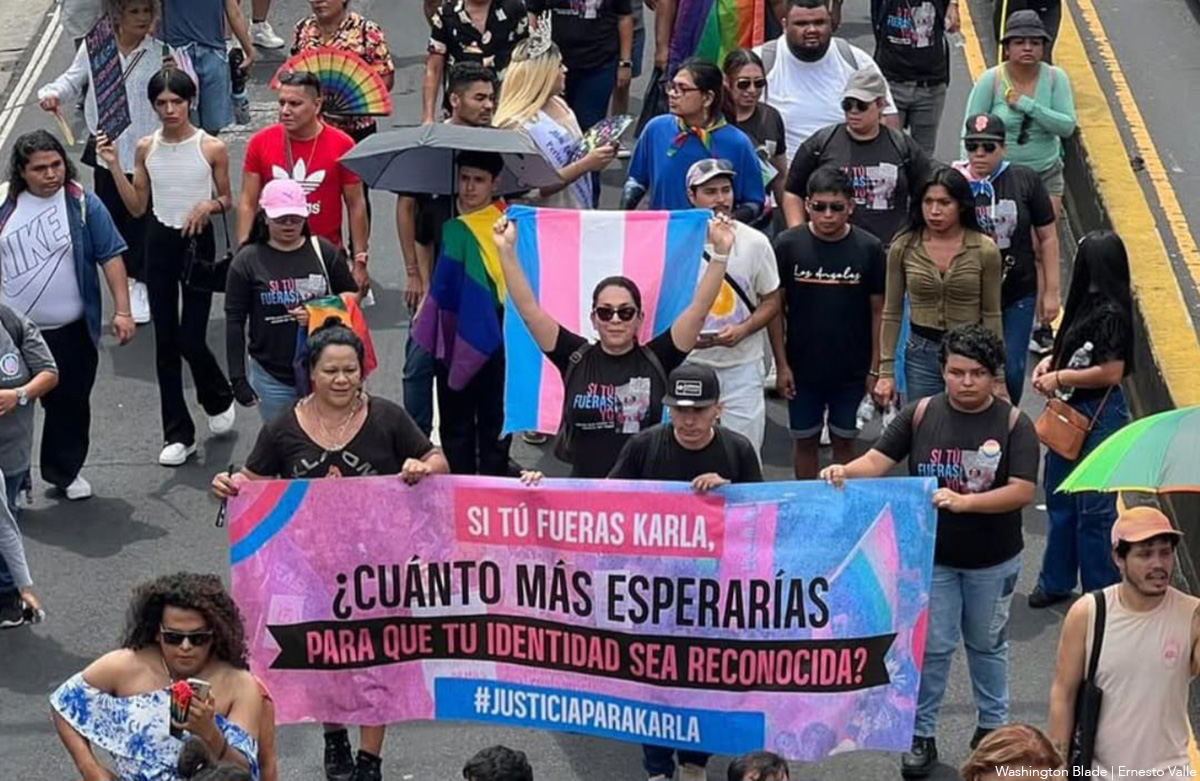
Cinco años han pasado desde que Karla Guevara inició un camino legal y personal para lograr que su nombre y género sean reconocidos en su Documento Único de Identidad (DUI). Cinco años de sentencias, apelaciones, puertas cerradas y vulneraciones que hoy se resumen en una sola palabra: resistencia.
En medio de un país que aún arrastra estructuras jurídicas y sociales poco sensibles a las realidades trans, Guevara se ha convertido en una voz visible. No solo por la denuncia pública de su caso, sino por su capacidad de transformar el dolor en acción: ha iniciado la campaña #JusticiaParaKarla, la cual acompaña con conversatorios llamados “Si tú fueras yo” en diferentes zonas del país.
Su historia se remonta al año 2018, cuando, junto a otras tres defensoras de derechos humanos —Mónica Hernández, Bianca Rodríguez y Verónica López— interpuso una demanda para lograr el cambio de nombre legal. La acción se inspiró en la Opinión Consultiva 24/17 de la Corte Interamericana de Derechos Humanos, que obligó a los Estados miembros de la OEA a garantizar los derechos de las personas trans, incluyendo el reconocimiento de su identidad.
A diferencia de sus compañeras, cuyo proceso fue resuelto favorablemente, Guevara fue la única a quien el Estado salvadoreño le negó el derecho, incluso tras contar con una sentencia favorable. El camino ha sido empinado, desgastante y doloroso, y ha implicado múltiples etapas legales con resoluciones contradictorias.
El 8 de enero de 2020, el juzgado declaró su demanda improponible. Guevara apeló el 22 de ese mismo mes, pero la Cámara de Familia desestimó su recurso. Aun así, perseveró. En abril de 2021 presentó una segunda apelación, y en septiembre se revocó la decisión del juzgado, ordenando admitir su demanda. Una pequeña luz parecía abrirse.
En agosto de 2022, después de varios peritajes que, según Guevara, incluyeron momentos donde se sintió expuesta y violentada, recibió una sentencia favorable: se autorizaba su cambio de nombre y género en la partida de nacimiento. Sin embargo, esta victoria fue parcial y breve. Aunque se ordenó marginar su partida, no se ordenó cancelarla como en otros casos similares.
El 4 de octubre de ese mismo año, la sentencia fue enviada al Registro del Estado Familiar. Pero la respuesta institucional fue sorprendente: el 3 de noviembre, la Alcaldía de San Salvador se negó a realizar el cambio. El jefe del registro y el registrador presentaron un amparo ante la Sala de lo Constitucional, paralizando el proceso.
“No solo me lo negaron, sino que ahora me exponen a un juicio aún mayor”, expresa Guevara. La frustración y la indignación fueron creciendo. En febrero de 2023, presentó una denuncia ante la Fiscalía General de la República, aunque lo hizo con poca esperanza. “Temía que no harían nada”, dijo. Y el 16 de abril de 2024, sus temores se confirmaron: la Fiscalía archivó el caso alegando que “no existe delito que perseguir”.
El 19 de noviembre de ese mismo año, Guevara decidió acudir a instancias internacionales y presentó su caso ante la Comisión Interamericana de Derechos Humanos. La CIDH ya notificó al Estado salvadoreño y le otorgó un plazo de cuatro meses para responder por qué no ha ejecutado el cambio ordenado por el juzgado.
“Obviamente no van a dar respuesta”, lamenta Guevara. Lo dice con la voz entrecortada, como quien ya ha llorado mucho, pero no ha perdido la voluntad de hablar. Reconoce que el proceso le ha afectado emocionalmente. “Cada vez que hablo de esto se me corta la voz”.
Las heridas no solo vienen de las oficinas estatales, sino también de las calles. Las miradas, los comentarios, el momento de presentar el DUI en cualquier trámite. “Es como si cada vez tuviera que explicar mi existencia. Es un juicio constante sobre quién soy”.
Guevara no está sola. Reconoce que hay otras personas trans en la misma situación. “Lo preocupante es que solo pasa en algunas zonas del país. En otras ha habido casos exitosos”, afirma. La disparidad en el trato revela una preocupante arbitrariedad institucional.
Uno de esos casos exitosos es el de Valeria Mejía, coordinadora de monitoreo y evaluación de ASPIDH. Su DUI ya refleja su nombre identitario, aunque no su género.
“Cuando recibí mi DUI con el nombre que me identifico pensé: aquí empieza una nueva vida”, relata.
Para Mejía, el cambio fue profundamente simbólico. “Uno ve pasar toda su vida frente a los ojos. Toda la discriminación, todos los rechazos. Sentí que algo sanaba”. A pesar de ello, su género asignado al nacer sigue apareciendo en el documento, lo que le genera inseguridad.
“El problema es que tengo que ir a todas las instituciones donde aparezco con mi nombre anterior. En el Seguro Social, por ejemplo, aún estoy registrada con el nombre masculino y no pueden atenderme, aunque el número del DUI sea el mismo”, explica.
Casos como los de Guevara y Mejía visibilizan una problemática estructural: el Estado salvadoreño no garantiza de forma uniforme el derecho a la identidad de las personas trans. Las resoluciones favorables son solo el primer paso. Su implementación efectiva aún tropieza con prejuicios, burocracia y omisiones.
Con la campaña #JusticiaParaKarla, la activista busca más que una solución a su caso personal. Busca generar conciencia, exigir coherencia legal y empujar una transformación cultural. En la marcha del 17 de mayo contra la LGBTIfobia, su presencia se hizo notar con camisetas, banners y mensajes que interpelan directamente al sistema.
Guevara ha hecho de su cuerpo, su voz y su historia una herramienta de resistencia. En cada conversatorio de “Si tú fueras yo”, invita a imaginar, a empatizar, a incomodarse.
“Lo que me pasa a mí le puede pasar a cualquier persona trans. Y si el Estado no nos reconoce, nos niega también la posibilidad de existir plenamente”, expresa.
Hoy, la resolución está en manos de la CIDH y el tiempo corre. La lucha de Guevara ya no es solo por una partida de nacimiento. Es por el derecho a ser, a vivir sin miedo, a que el nombre que la representa no siga siendo un motivo de juicio, burla o rechazo.
Mientras tanto, sigue esperando. Sigue alzando la voz. Sigue sembrando esperanza en quienes vienen detrás. Porque como ella misma dice: “Esto no se trata solo de mí. Se trata de justicia”.
-

 Federal Government1 day ago
Federal Government1 day agoTreasury Department has a gay secretary but LGBTQ staff are under siege
-

 Virginia2 days ago
Virginia2 days agoDefying trends, new LGBTQ center opens in rural Winchester, Va.
-

 Opinions3 days ago
Opinions3 days agoUSAID’s demise: America’s global betrayal of trust with LGBTQ people
-

 Travel4 days ago
Travel4 days agoManchester is vibrant tapestry of culture, history, and Pride










